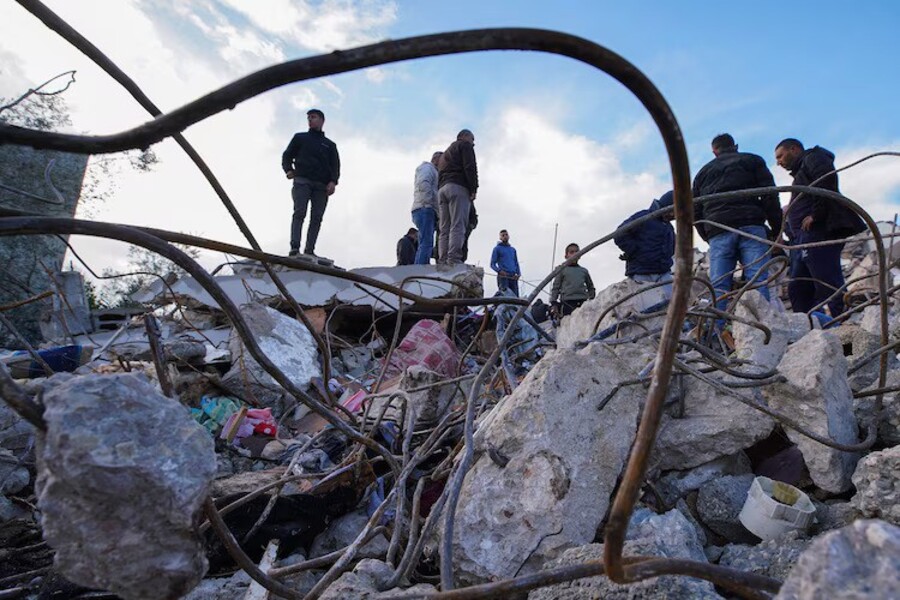At just 12 years old, Alma Ja’arour has faced more tragedy than many endure in a lifetime. After losing her entire family when her home in Gaza City was bombed in December 2023, Alma is now the sole survivor. The world around her continues to move forward, but for Alma, the scars of that fateful day remain fresh.
Under a fragile ceasefire agreement between Israel and Hamas reached on January 15, Alma is preparing to return to her shattered hometown. However, the trip offers little comfort. For her, it’s not about reclaiming a normal life—it’s about confronting a painful past. “My mother, father, and brothers are all buried in one grave in our home in Gaza City,” she said. “I want to see them, say goodbye. But what will I do after that? There is no home to return to, no one waiting for me.”
For Alma and thousands of others displaced by the ongoing conflict, returning to Gaza is a complex and emotional journey. After spending 15 months in displacement camps, Alma and others like her will soon be allowed back to northern Gaza. However, the emotional toll is heavy. Alma’s story mirrors those of countless other children affected by the violence. According to UNICEF, more than 17,000 children have been separated from their families due to the conflict, leaving them to face unimaginable challenges alone.
Despite the immense grief, Alma carries a spark of hope. Inspired by her late father, who always encouraged her education, she dreams of becoming a doctor. “I want to make my parents proud of me in heaven,” she said. “Through education, I can achieve my goals. I will work hard to make my father proud.”
Currently, Alma resides at the Al-Barakah Orphanage Camp in Khan Younis, which provides shelter and support to children who, like her, have lost everything. The camp offers not just a haven but also a glimmer of stability in an otherwise turbulent life. Mahmoud Kalakh, the camp’s director, highlighted the remarkable resilience of the children in their care. “These children carry the weight of tragedy, yet they still dream of a better future,” he said. “Our role is to provide them with the support they need to heal and rebuild their lives.”
The humanitarian crisis in Gaza has prompted urgent calls for global intervention. Organizations like UNICEF are working tirelessly to provide resources and aid to displaced and orphaned children. Yet the scale of the crisis is overwhelming. A UNICEF spokesperson emphasized the importance of immediate action: “Children are the most vulnerable in conflicts. We must ensure they have the resources and care they need to survive and thrive.”
Alma’s story serves as a stark reminder of the human cost of conflict. While the ceasefire offers a momentary reprieve, the devastation left behind will take years to address. For Alma and thousands of other children in Gaza, the road to recovery is long and fraught with challenges. Yet, her determination to honor her family’s memory through education offers a powerful testament to the strength of the human spirit.
As the world watches the aftermath of the Gaza conflict, Alma’s voice stands as a poignant symbol of resilience. Her journey is not just a personal battle but a call to action for compassion, peace, and support for the most vulnerable. Beyond the statistics and headlines are lives forever altered, dreams waiting to be realized, and futures hanging in the balance.
Alma’s return to Gaza this weekend is more than just a trip home—it is a courageous step forward in the face of unimaginable loss. Her story inspires hope and underscores the urgent need for global solidarity to rebuild the lives of those most affected by conflict.
